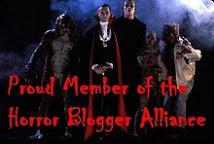Which brings us to Frenzy, a film that was loved by Mr. Ebert and a film that, for our purposes, is more importantly Mr. Hitchcock's most brutal, vile, and morally reprehensible film. This is the next-to-last film the director completed before his death, and more than 40 years later it feels kind of like the director is holding up a pair of middle fingers to anyone who's ever been on his bad side. It's no secret that Hitch was always a bit devious, but this is the first time his playfully macabre sensibilities seem to be completely untethered. Ebert probably said it best in his review, saying that the film could remind us of "Psycho without the shower curtain."
After the gates of violence in cinema were flung open at the beginning of the 1970s - see Dirty Harry, Straw Dogs, or The French Connection for proof - it appears that Hitchcock could tell that things that were once taboo to mainstream audiences were suddenly available to him. Working from a script by Sleuth and The Wicker Man scribe Anthony Shaffer, Frenzy gives the director a chance to use his "wrong man" formula in a new "adults only" manner. One one hand this is the same thing the director was doing when he was at his peak, but on the other hand it is something completely different. It's a Hitchcock film, but it's also a film that opens with a naked woman's body being fished out of a river.
My greatest memory of Frenzy is a perfect representation of the aspect that sets it apart from the rest of the man's films. A few years ago, two friends and I decided to try to watch all of Hitchcock's work. Over the next several months, we hammered through renowned films like Rear Window (my personal favorite movie ever) and obscure stuff like the romantic comedy Mr. & Mrs. Smith and even Hitchcock's short and French World War II propaganda films. And then there was Frenzy, which was at least the 18th Hitchcock film we watched. And there we were, three friends - one who had seen the film before and two who had not - watching this murder plot unfold, and suddenly I realized that the discomfort in the room was unlike that I'd felt during any of the films we had watched before.
In a world with looser moral standards and an acceptance of brutal cinema - so, basically, the 1970s forward - I have to believe that this is what you would have seen from Alfred Hitchcock. The man took pride in every shock he could offer the viewer, he took pride in every beautiful woman that he could ogle with the camera, and he took pride in every bizarre and controversial idea he could fit into a film. Frenzy not only represents an example of what the 72-year-old director could still do to an audience in 1972, but it represents that one place in time where he had the freedoms that I assume he always wanted, even if he does retreat back into the playful cop vs. fugitive vs. killer games of his past in the second and third acts. He doesn't bash us over the head with depravity, but he certainly earns his first R-rating.
As someone who grew up with his more popular fare, it's always been hard for me to accept Frenzy alongside some of these masterpieces. But much of my pause comes from how rare and unpolished the film is compared to those sly movies with Grant or Stewart and every beautiful woman who ever mattered in Hollywood. Yet that's exactly what makes Frenzy so appealing as counterprogramming to the rest of his work. When it comes to vile behavior and visible sleaze this is not on par with The Last House on the Left or its brethren, but it's got moments that are a lot closer to that than anything else Hitchcock has ever made. At the same time, it's a film that's made by Hitchcock - with his trademark playful moments like the potato truck predicament our killer faces late in the film - and the combination of these elements is a one of a kind experience.
















No comments:
Post a Comment